A Streetcar Named Desire: Characters (Cambridge (CIE) IGCSE English Literature): Revision Note
Exam code: 0475 & 0992
Characters
It is vital that you understand that characters are often used symbolically to express ideas. Tennessee Wiliams uses all of his characters to symbolise various ideas prevalent in his society, and the differences between characters reflect contemporary debates. Therefore, it is very useful not only to learn about each character individually, but how they compare and contrast to other characters in the play.
It is important to consider the range of strategies used by Williams to create and develop characters within A Streetcar Named Desire. These include:
How characters are established
How characters are presented:
Physical appearance or suggestions about this
Their actions and motives
What they say and think
How they interact with others
What others say and think about them
How far the characters conform to or subvert stereotypes
Their relationships to other characters
Below you will find character profiles of:
Main characters
Blanche DuBois
Stanley Kowalski
Stella Kowalski
Harold Mitchell (Mitch)
Other characters
Eunice Hubbel
Steve Hubbel
Examiner Tips and Tricks
In the exam, the idea of a character as a conscious construct should be evident throughout your response. You should demonstrate a firm understanding that Williams has deliberately created these characters to perform certain functions within the play.
For instance, you could begin to consider why Williams has chosen to present Blanche in the way that he does. Consider her costumes and mannerisms, as well as what she says. As this is a play, an exploration of dramatic form is also essential to a study of her character. Consider the music often playing in the background when Blanche is feeling particularly stressed or unstable. Try to explore reasons as to why Williams may have chosen to do this and what it might suggest about the character.
Blanche DuBois
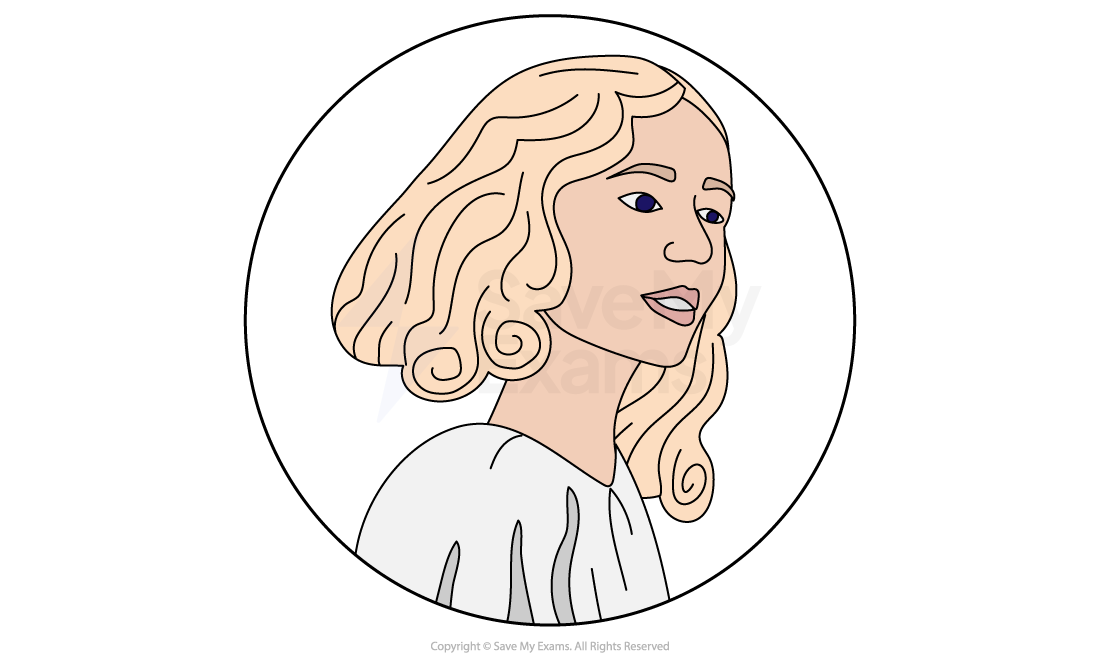
Blanche is about thirty years old and is Stella’s older sister
She is a delicate, fluttering creature who first appears wearing a white dress and looking out of place in the run-down part of New Orleans where Stella lives
In the stage directions, Williams says that she is a “delicate beauty who must avoid strong light” and that there is something about her that “suggests a moth”
She is a complex, contradictory character:
The audience becomes aware early in the play of her class snobbery in her dealings with Eunice and her reaction to Stanley
We also learn that she is a heavy drinker:
She perhaps drinks to blot out the guilt about her past
She is fond of taking long baths, symbolically to wash away her guilt
She embodies some masculine qualities, such as overt sexuality, which juxtaposes with her delicate, feminine appearance and mannerisms
She is nervous and appears constantly on edge
As a young woman, she married a man she later discovered to be a homosexual:
She feels responsible for him taking his own life by telling him that he disgusted her
She was then subjected to a series of deaths in her family, illustrating the brutality of life
These events have severely affected her mental health:
When she is feeling stressed or remembering her young husband, she hears the polka tune that was playing when he committed suicide
She then hears a shot and the music stops
In order to try to alleviate the guilt she feels at her husband’s suicide, she has given herself to lots of other young men who remind her of her husband:
This could be seen as her trying to fill the void left by her husband’s death
When Blanche arrives at Elysian Fields, she has lost the family home, Belle Reve, and is facing financial and personal destitution:
However, she desperately clings to the fantasy of her being a refined Southern Belle
She is cultured and intelligent, and cannot stand what she considers to be vulgarity or poor manners, especially from a man
Blanche is repulsed by Stanley, but is almost perversely attracted to his masculinity and physicality, like a moth to a flame:
She tries to win Stanley over by using her feminine charms
This suggests that if she cannot function as a woman, then her life is invalid
She represents illusion and fantasy, which will always be at the mercy of the harsh real world:
She says that she doesn’t want realism; she wants “magic”
She changes the apartment to make it more feminine, and cannot have naked light bulbs
She prefers to live in a quiet, half-lit world of illusion
This suggests that she does not want to see things as they are
In Mitch, she sees a chance to be “saved” and looked after in the way that she wants:
She presents Mitch with the illusion of being a delicate, innocent woman who needs a strong man to look after her
However, when Mitch learns the truth about Blanche’s past from Stanley, he forces Blanche to admit to her lies
Blanche defends herself, telling him that “inside, I never lied”
However, through Mitch confronting her, Blanche is stripped of her chief attribute – her illusions
Blanche’s past sexual encounters have always been with strangers:
This would explain why she pushes Mitch away when he tries to have sex with her, reacting as though Mitch is trying to attack her
Whereas for Mitch, her reputation has been sullied to the extent that he believes that she should have no objections to sleeping with one more man
The fact that, on the same night, Stanley rapes her, reinforces the double standards that suggest that it is acceptable for men to have sex with lots of women, but it is not ok for women to do the same
Stanley’s rape of Blanche destroys her completely as an individual
Blanche’s final remarks in the play echo her life:
As she leaves with the doctor, she remarks that she has “always depended on the kindness of strangers”
Blanche’s part in the story ends in the hands of a stranger
Stanley Kowalski
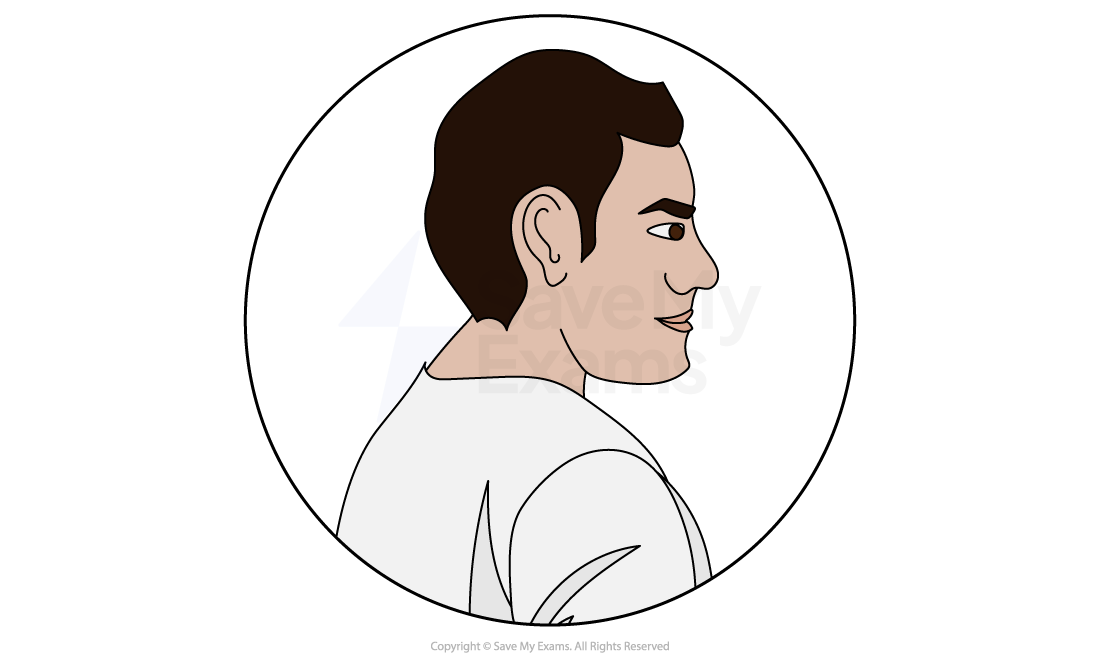
Stanley Kowalski is Stella’s husband and Blanche’s brother-in-law
He is direct, passionate, realistic and often violent
He lives in a patriarchal system in which he expects his wife to be subservient to him:
He believes his authority is threatened by Blanche’s arrival
With his Polish ancestry, he represents the American Dream:
He fought in World War II, and now works as an auto-parts salesman
He sees all working-class men as capable of achieving what they want through hard work, and is fiercely loyal to his friends
He is at ease with the men around him as he seems confident of his own superiority to them
He therefore seems to inspire loyalty as well in his friends, despite bullying them and sometimes being violent with them
He is practical and has no time or patience for Blanche’s fantasies and illusions:
He likes to speak plainly and embodies qualities that can be seen as straightforward and masculine
Blanche views him as crude, vulgar and common
He is loud and explosive:
This is reflected in his costumes, which are often loud and gaudy
He is described as the “gaudy seed-bearer” who takes pleasure in his masculinity
He is a dominant character and is shrewd:
He is sensitive to the fact that he married someone of a higher class than himself
He resents Stella’s background, which explains his desire to pull her down to his level
The conflict between him and Blanche is therefore inevitable, as he sees Blanche as trying to pull Stella back to her past
He embodies patriarchal values, believing that anything belonging to his wife also belongs to him:
He therefore believes that if his wife has been swindled, then he has been swindled
He investigates this directly in order to uncover the truth, not caring for Blanche or Stella’s feelings
Throughout Blanche’s stay, he believes that she has drunk his liquor, eaten his food and taken advantage of his hospitality
He sees Blanche as responsible for upsetting the status quo between him and Stella:
He resents the fact that she feels superior to him
He therefore is intent on finding out about her past, so that he can re-establish superiority and his dominance over Stella
When Stanley rapes Blanche, this is partly out of revenge, but it is also his final act of establishing reality over Blanche’s fantasy world:
He establishes his dominance over her and her world in the only way he understands
Stella Kowalski
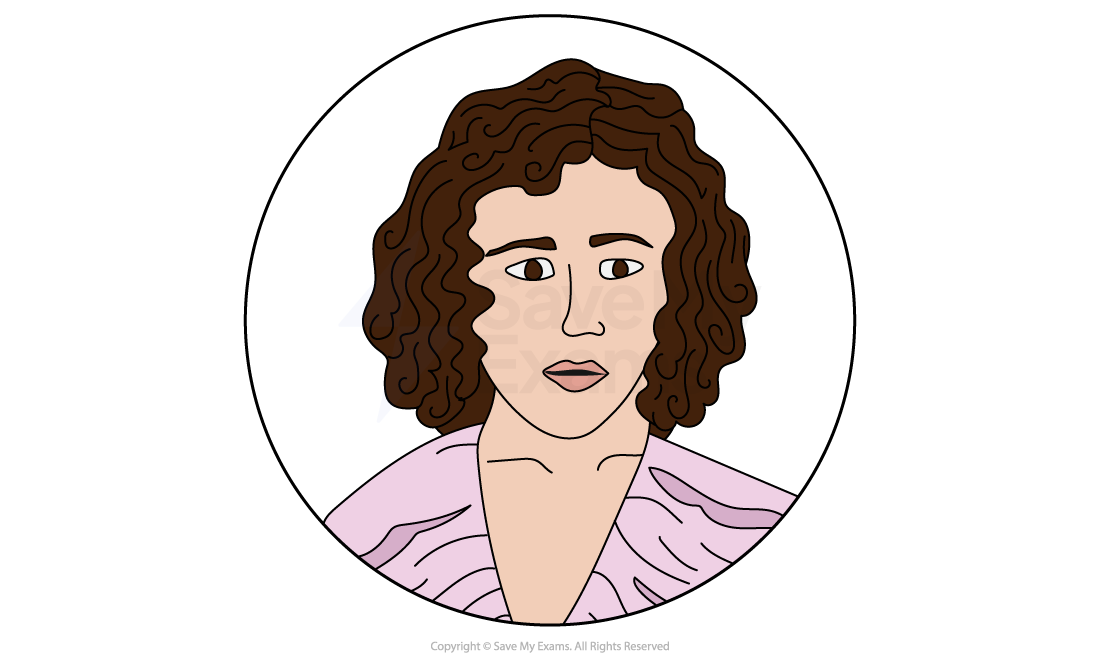
Stella is Blanche’s younger sister and Stanley’s wife
She is the feminine to Stanley’s masculine, and the calm to Blanche’s hysteria:
She is the character who bridges the divide between the two worlds represented by Blanche and Stanley
Her character is the suggestion that a blend of the two worlds is in some way possible, but is made impossible by Stanley and Blanche’s inflexible attitudes
This also places her as a pawn in the game, with both Blanche and Stanley trying to assert their alliance with her
She is described as having a quiet, reserved manner:
Blanche treats her like a child, and yet Stella makes no objection to waiting on her
She is deeply, physically connected to Stanley:
She has therefore no desire to return to her past, even though she cares about Blanche
She will always choose Stanley over her
This is evident in her decision to return to Stanley after he hit her, and her decision to believe Stanley over Blanche in regards to the rape
She is complicit in the decision to send Blanche to an asylum
Stella’s surrender to Stanley’s world is almost totally complete:
Even though Blanche has some influence over her, resulting in tensions between Stanley and Stella, Stella has accepted Stanley’s world and its values
This is evident when she fiercely defends Stanley against Blanche’s criticisms
It is Stella’s acceptance of Stanley’s version of events in order to protect her marriage and her family at the end of the play that draws the most parallels with her sister:
She chooses to deny reality in order to continue to live in an illusion
Harold Mitchell (Mitch)
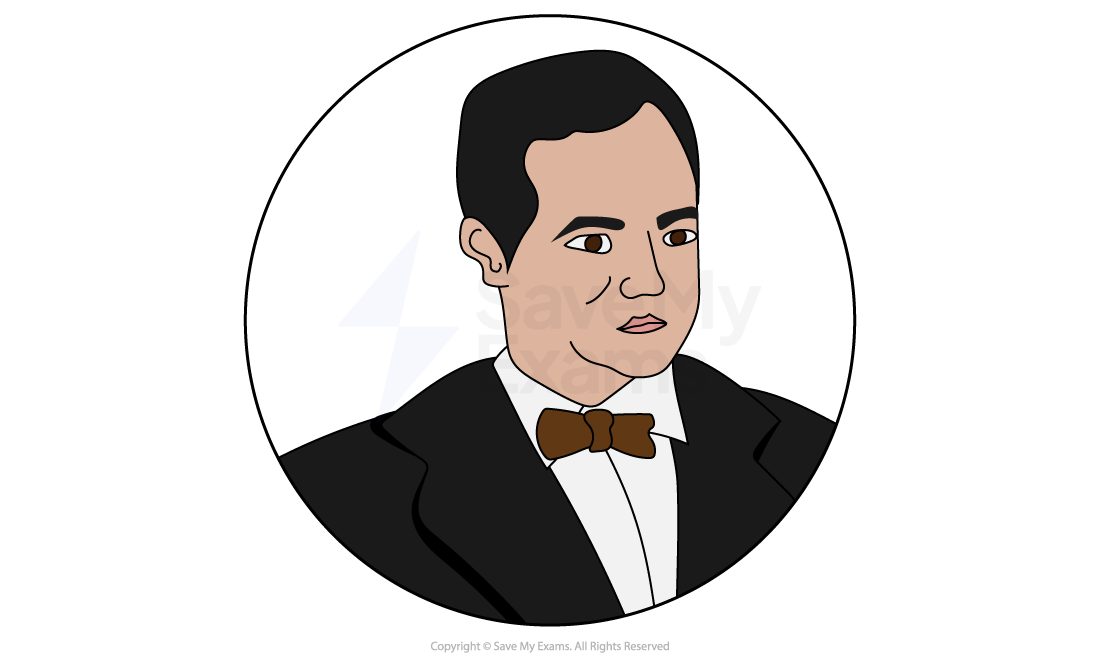
Mitch is an army friend of Stanley’s, as well as his co-worker and friend
He is clumsy and unrefined, but is more sensitive and gentlemanly than Stanley and his other friends:
He displays awkward courtesy and embarrassment when he first meets Blanche
Blanche is quick to notice that he seems to be more sensitive than the others
He lives with his mother, who is slowly dying, and for whom he obviously cares deeply
He acts as a foil for loud, domineering Stanley
He dates Blanche and comes to an agreement to marry her, until he finds out the truth about her past:
The two are an unlikely match, as Mitch is not a typical chivalric hero
However, Blanche thinks of him as the man who can save her
He acts respectfully towards her, asking her permission to kiss her
He has the demeanour of a boy, bragging about his physique, which Blanche plays up to
Mitch matters to Stanley, who needs his admiration and respect to maintain his superiority in the pack:
He therefore tells Mitch what he has discovered about Blanche
Mitch believes he has been lied to, showing his straightforward nature
He attempts to assert dominance over her, but cannot achieve it
He therefore leaves as a failed hero, left as lonely and alone as Blanche
Minor characters
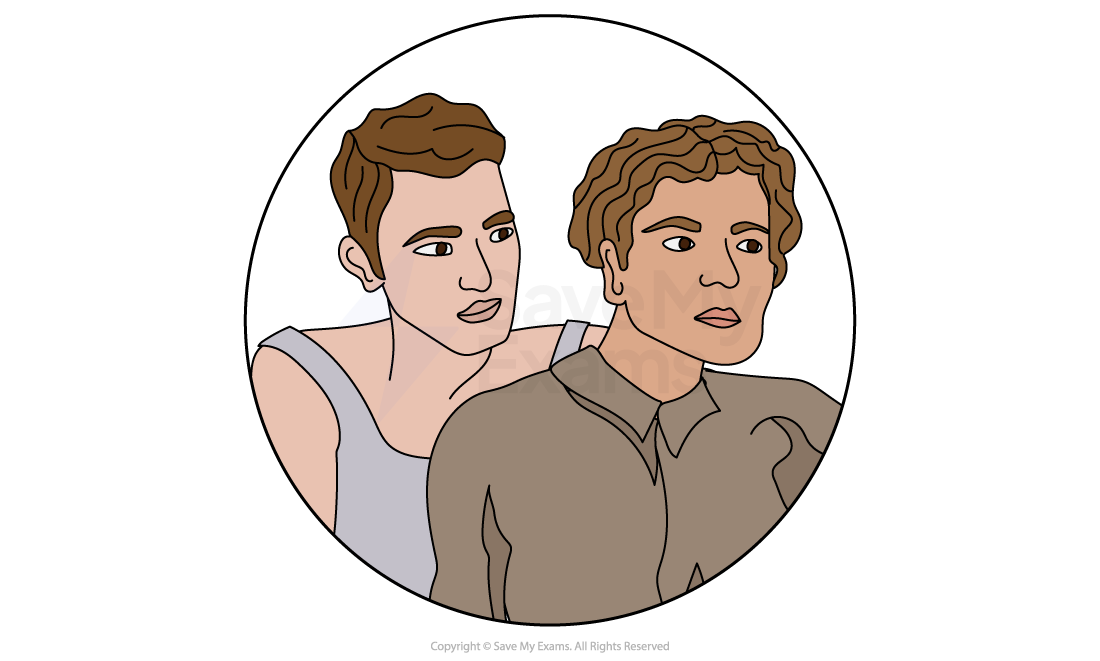
Eunice Hubbel
Eunice is Stella’s friend and upstairs neighbour
She lives with her husband, Steve, and represents the lower-class life that Stella has chosen
Like Stella, Eunice overlooks her husband’s physical abuse to remain with him:
She often kicks Steve out, accusing him of having affairs, only to reconcile a short time later
Her advice to Stella at the end of the play represents what she symbolises, as she tells Stella that she has no choice but to believe Stanley
Steve Hubbel
Steve is Eunice’s husband and Stanley’s poker friend
Like Stanley, he is a vulgar, hot-headed, physically fit man and an abusive husband
He and Stanley’s other poker friend, Pablo, seem to disagree with the decision to call the doctor on Blanche, but do not challenge Stanley directly

Unlock more, it's free!
Did this page help you?